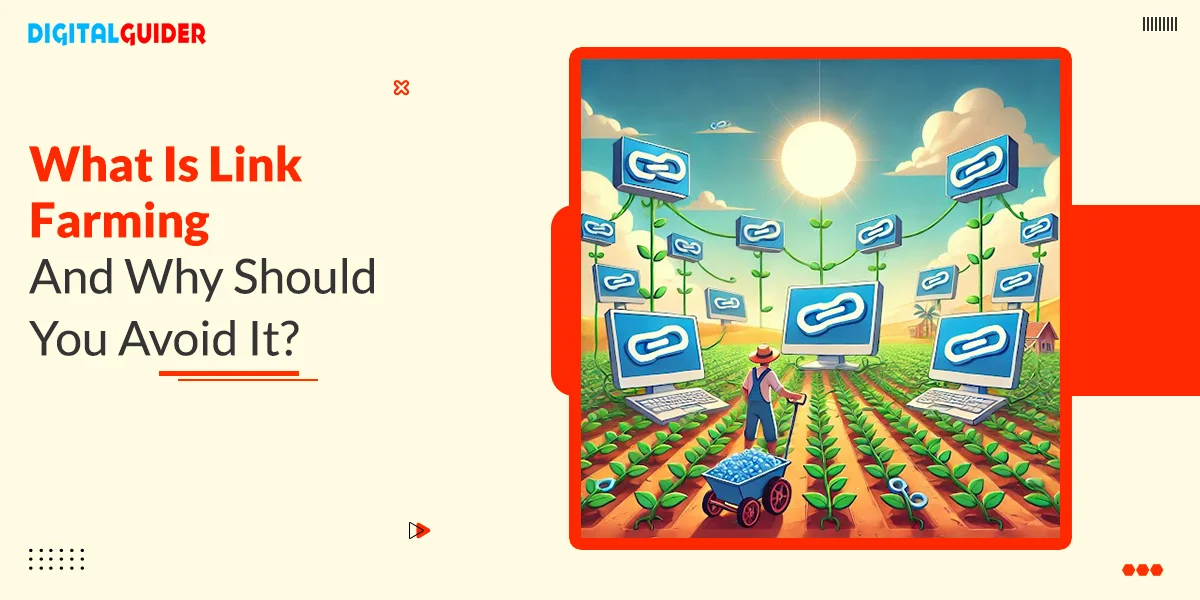Link farming is a controversial link-building practice that Google disapproves of.
Link Farms are groups of websites that link to each other. They are built of multiple hyperlinked websites that don’t consider content quality.
As of now, all website owners know how important link building is for their ongoing SEO efforts.
But not all backlinks are equal. Inbound links are great, but some aren’t the kinds you want in your backlink profile.
Link farming is bad incoming links, and links gained through it can penalize you by Google and simultaneously damage your website and SERP rankings.
This penalty could decrease web traffic and cause search engines to remove your website from search engine results pages (SERPs).
Backlinks influence search engine ranking, which can be achieved through authentic resources. This blog discusses everything related to link farming.
Let’s understand what link farming is
Link farming is a technique used in website promotion in which a group of websites simultaneously hyperlinks to each other. Think of it as a community of websites recommending each other. These websites are created only to build several interconnected links, and you won’t get quality or unique content. They only provide low-quality content with relevant keywords.
One of the major parts of black hat SEO is link farming. This technique is often used to trick search engines like Google into boosting rankings. Google has never liked such practices, but numerous websites artificially interlink to boost their search engine rankings.
As per PR news, search engines like Google have caught on to these tricks. They realized some websites were trying to game the system using link farms. Search engines updated their rules to ensure they showed users the best and most relevant results.
The key objective of link farms is to manipulate search engine rankings by creating networks of websites that appear to have authority and relevance due to the sheer volume of backlinks.
Google has always been against link farms. These sites provide no unique value to the user and are made up of low-quality, spammy links that can hurt a website’s overall SEO performance.
Is Google against link farming?
Yes, Google hates link farming as it is a manipulative tactic against its natural, quality link-building guidelines.
At first, link farming appeared in response to one of Google’s ranking algorithms, PageRank.
Earlier, websites were considered trustworthy based on their overall value and popularity.
If a site had more backlinks, then that site was considered valuable, though there were some methods to tell the difference between genuine and fake backlinks.

As you can see in the image, according to Google, manipulating links to or from your site can be considered a link scheme and a violation of their Webmaster Guidelines. This includes actions intended to artificially boost PageRank or site rankings in Google search results.
However, due to Google’s new evolving algorithm, it’s becoming easier to detect link farms & prevent them from dominating SERPs.
In December 2022, Google released an update called SpamBrain that nullifies inbound links from link farms. Therefore, Google’s ranking algorithm disregards and penalizes reciprocal links from link farms.
Search engines generally disapprove of this practice, and it can lead to severe penalties. Now, let’s delve into why link farms often have high Domain Authority (DA)
Why do link farms have high DA?

Avoid being tricked by SEO metrics that might make you believe a website is a good candidate for inclusion in your link-building efforts.
Even though the content on link farms is usually of low quality, SEO instruments frequently indicate that it is highly ranked.
Numerous justifications exist for creating link farms on high-ranking domains, and it’s a widespread strategy, such as:
- Built on an expired domain that once had a high Domain Authority (DA).
- A formally recognized website that previously provided value but has now fallen into disuse.
- A component of a PBN that is artificially boosting its domain metrics.
Google’s authority ranking knows which websites are spam or genuine and ranks them accordingly, whereas SEO tools won’t show you this on their domain authority rankings.
Therefore, even if the website has good domain metrics, you should avoid it since it will negatively affect your page rank rather than boost it.
How to Detect Link Farming?
Now that you are aware of what link farming is, let’s explore how we can identify them:
1. Low-Quality and Irrelevant Content
People’s operation of link farms never focuses on quality content, and you’ll rarely see original content on these websites. These websites focus on guest posting.
You can use tools like Anyword to generate quality content if you want assistance writing content.
2. Spammy Domain Names
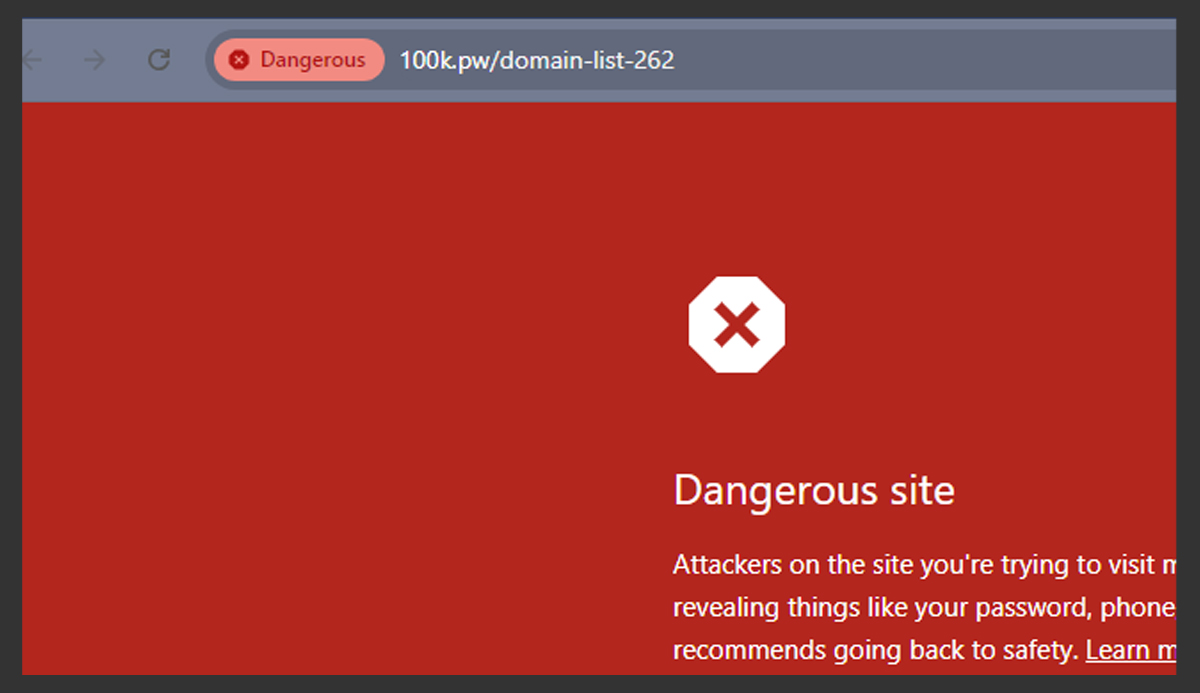
You will encounter many spammy domains with strange names and irrelevant keywords. Crafting irrelevant domain names or associations with their content is a spammy strategy used in link farming.
Link farms often use spammy, unrelated domain names, which makes them less credible. Such websites can negatively affect your SEO metrics.
3. Excessive Outbound Links
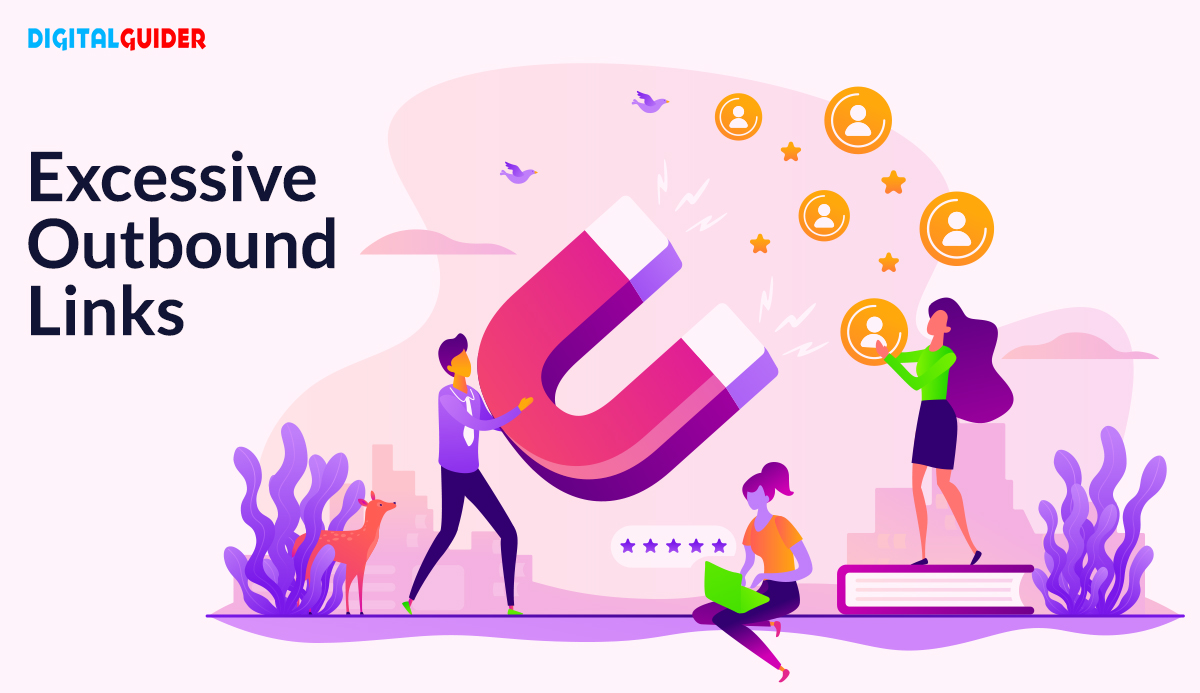
Link farms often host many outbound links to manipulate search engines. To avoid link farming, you must ensure the website has a reasonable number of linked sites.
Use Ahref to find how many links a website possesses.
4. Anonymous Authors
The link farm owners use false author identities; they will often use anonymous names such as “team (site name),” “guest writer,” or “guest contributor (without a name).
Why Should You Avoid Farm Linking?
Although link farming sounds worthwhile to boost search engines’ ranking, it is highly damaging to your website and is not worth the risk. Here are a few important reasons to avoid link farming at all costs.
1. Penalties Associated with Link Farming
As we know, Google is good at detecting link-farming activities, as link farms increase the chance of spammy backlinks or poor-quality links, which puts your website at risk.
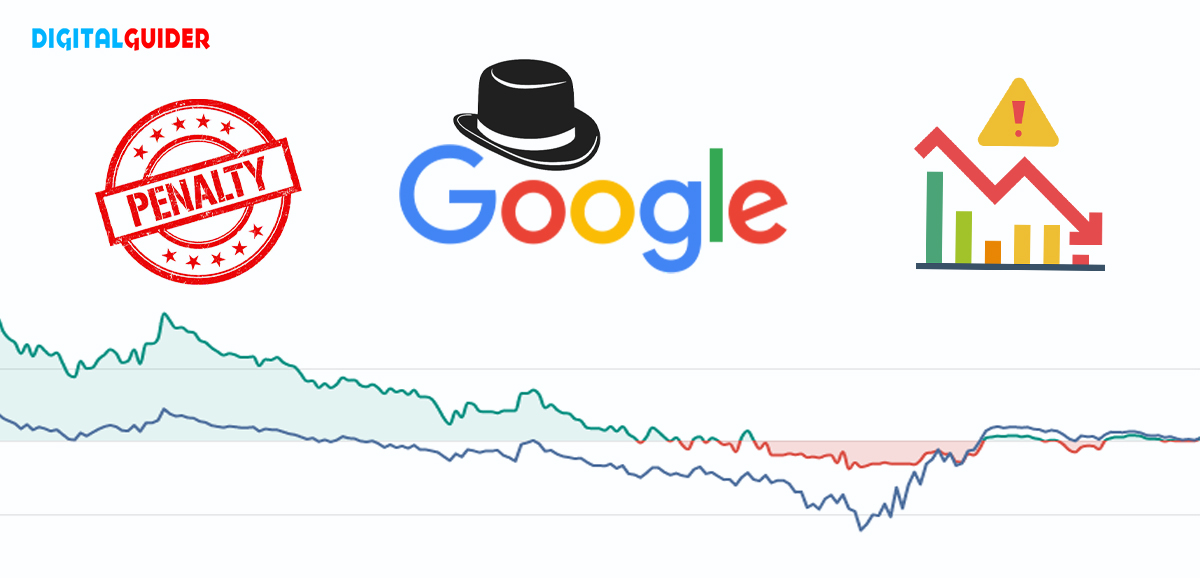
Google never considers ranking earned through merit as through advanced algorithms; it’s easy to spot unnatural links. Often, a reader who is unsatisfied or your very own competitor reports your website, which leads to penalties.
Penalties for link farming can result in a fall in ranking or even complete de-indexing. Still, you probably won’t get any formal notifications, though you will notice a drop in your web traffic and ranking.
2. Not Trustworthy
There’s always a surety that the link farm website will be shut down or penalized, whether the link farm owners are doing a good job operating the sites. Simply put, there’s no guarantee that the link you paid will remain active in the long run.
Link farms are often penalized abruptly after a few days. You will waste your money, plus your site will be banned for practicing link farming.
Additionally, there is no surety that even if the link farm site remains live, your backlinks won’t be removed without warning. As there is always a new algorithm update by the popular search engines.
For instance, in March 2023, Google rolled out its content update, impacting how companies publish content.
3. Attracts Poor Traffic Quality
Regarding website traffic, we should be more concerned about quality traffic than quantity. Link farming promises you an increased backlink but will attract low-quality traffic.
This will automatically increase the bounce rate and low time-on-page metrics.
However, posting on high-quality sites or websites related to your niche will significantly attract interested visitors and improve your metrics.
—Why is Quality Traffic Important?
Below are some reasons why focusing on your website’s traffic quality is important:
- Results in high ROI
- Users are likely to engage and convert into consumers,
- It helps establish your website authority and
- Increases average time spent on your website
4. Gives a Bad Reputation
Website owners posting links to other websites without real content is risky, as this is also link farming. It can harm their reputation, as it would show that they are not credible or trustworthy.
Link farming might get you labeled a spam site by Google, ultimately affecting your search engine rankings.
In short, posting links to different sites without any real content is an act of link farming that damages your reputation and SERP ranking. So, to improve your website’s SEO, avoid link farming as much as possible.
5. Not a long-term solution
Link farming is a shortcut to boosting your website’s ranking, but it’s not a long-term solution.
There’s always an updated Google algorithm that makes Google detect link farming and penalize them.
Moreover, as more people know that link farming harms their website’s ranking, it is becoming less effective. So, while link farming may give you a short-term boost, it’s not worth the risk in the long run.
6. Removes your site from directories
Link farming artificially inflates the site’s search engine ranking by creating links. This is a black hat SEO practice, so sites are removed from directories and search engines.
— How do you fix unnatural links from Link Farm?
When Google sends you a manual action or if you want to check your backlink profile, here are some ways that could help you:
- Download your link report from Google and open it.
- Perform a manual review of the sites to detect and authenticate suspicious links.
- Remove or add no-follow attributes to the bad links you find. If you can’t remove a link, deny it so Google knows to ignore those links.
- Send Google a reconsideration request when you’re done cleaning your website’s backyard.
Let’s know the difference between a link farm and a web directory:
Search engines have disapproved of link farming techniques, which ultimately harm users. Link farms usually manipulate search engine pages (SERPs), though they contain links without categories or logical order.
As a result, websites engaging in link farming were removed from Google’s index and directories altogether. Always check Google Index Checker to make sure your website is not de-indexed.
Web directories are collections of links organized into relevant topics. For example, you might visit a plumbing directory looking for a plumber.
You must have at least 40 domain authorities to include your website in these directories.
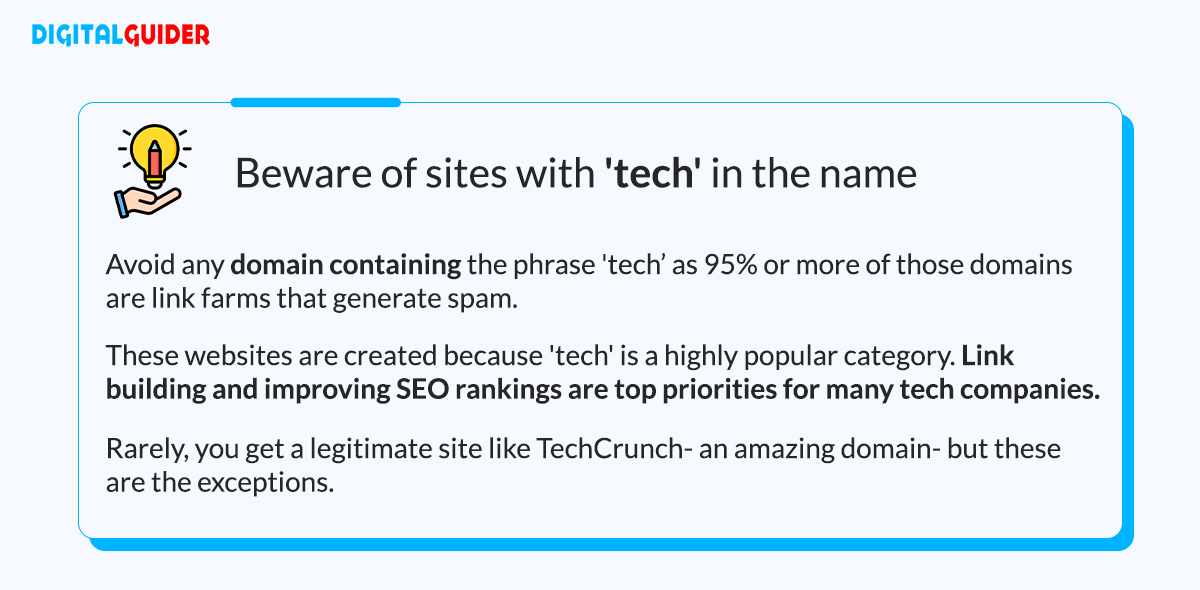
Other Things You Can Do Instead of Link Farming
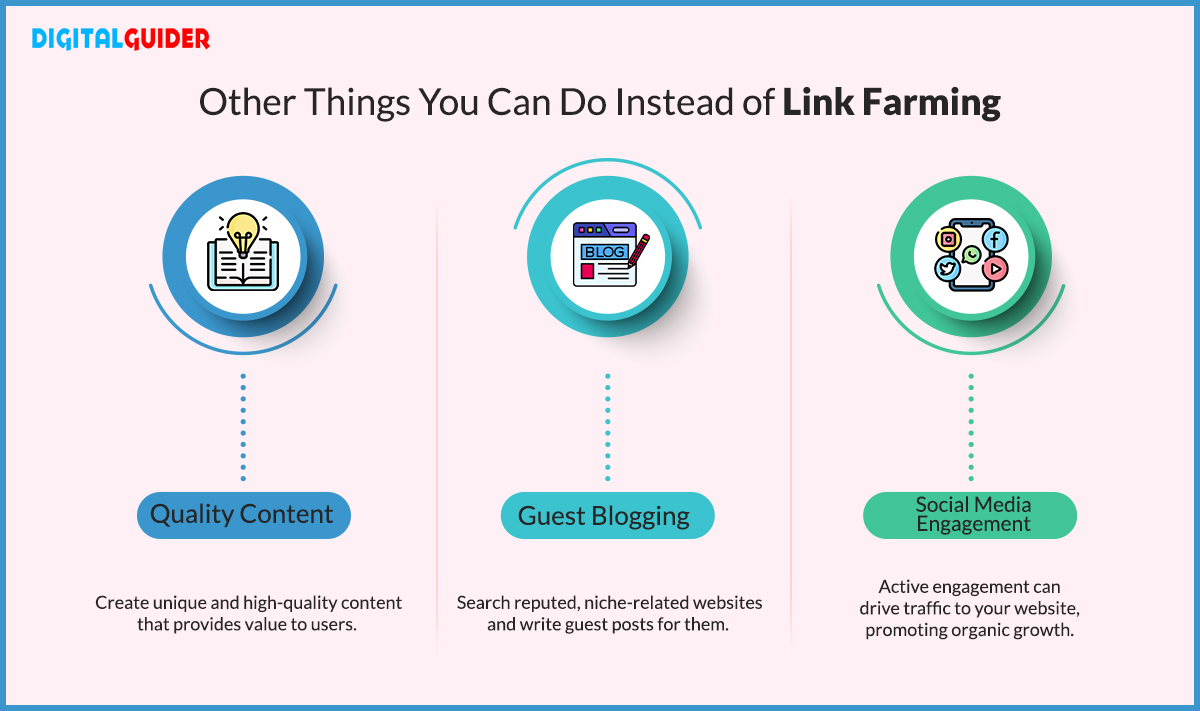
As we learned, link farming is a quick shot, but you won’t get the benefit in the long run. The only way to achieve long-lasting success is to have integrity and patience.
Here’s what you can do:
- Quality Content: Create unique and high-quality content that provides value to users. This encourages natural backlinking, improving your website’s SEO rankings organically.
- Guest Blogging: Search reputed, niche-related websites and write guest posts for them. This builds a quality backlink profile and gives authority to your website.
- Social media engagement: Active engagement can drive traffic to your website, promoting organic growth.
Stay up-to-date and get results.
The attraction of quick results might make link farms appear practical, but the journey to the top requires you to follow originality.
Not only do you risk getting a Google Penalty by having these links in your profile, but you could also wholly tarnish your brand’s reputation.
We advise you to act cautiously when developing your list of target websites for your outreach efforts. Ensure you check each website for the warning signs we mentioned before contacting the webmaster, and avoid working with agencies that promise fast and guaranteed results.
Visit our website to learn more about our agency and the link-building tactics we use to ensure search engines love your website.
FAQs – What is Link Farming
Q1. What does Google label link farming as?
A1. Google labels link farming as a black hat SEO tactic.
Q2. How does link farming differ from legitimate link building?
A2. Link farming focuses on quantity with low-authority, irrelevant sites, while legitimate link building prioritizes high-quality, relevant backlinks from reputable sources.
Q3. Why does link farming dominate SERPs?
A3. Link farming dominates SERPs by artificially inflating backlinks, making sites seem more authoritative.
Q4. How does Spambrain improve SEO?
A4. Spambrain improves SEO by filtering spammy content & low-quality backlinks, ensuring credible website rank.
Q5. What is the difference between PBNs & link farms?
A5. PBNs are controlled networks of websites made to look actual and boost rankings, while link farms are groups of spammy sites created only for backlinks.
Q6. What is link farming spam?
A6. Link farming spam involves creating low-quality websites to generate backlinks & manipulate search rankings.
Q7. How many links are enough?
A7. A website homepage should have 40-50 backlinks.
Q8. What is disavow?
A8. Disavow in SEO is the process of telling Google to ignore harmful backlinks to protect your site’s rankings using the Disavow Tool.
Q9. How can I disavow links from link farms?
A9. Disavow tools like Google Search Console can be used to prevent penalties from search engines.
Q10. What are some ethical alternatives to link farms for improving SEO?
A10. Ethical SEO alternatives include quality content creation, guest blogging, influencer outreach, social media engagement, and broken link building.
Q11. How can websites avoid being associated with link farms?
A11. Websites can avoid link farms by focusing on quality backlinks, avoiding spammy links, and auditing their backlink profile regularly.
